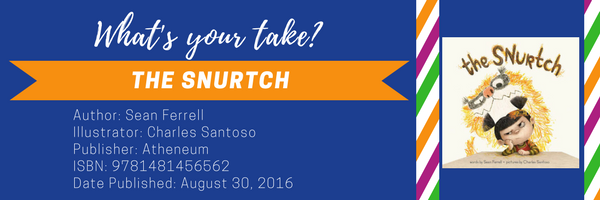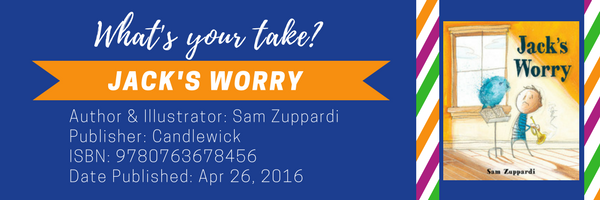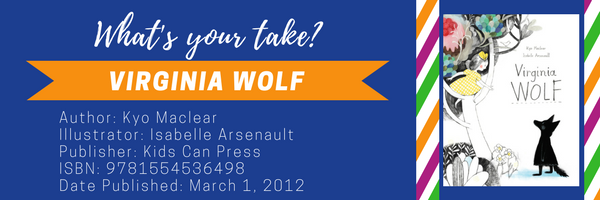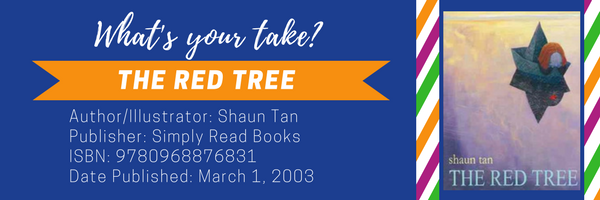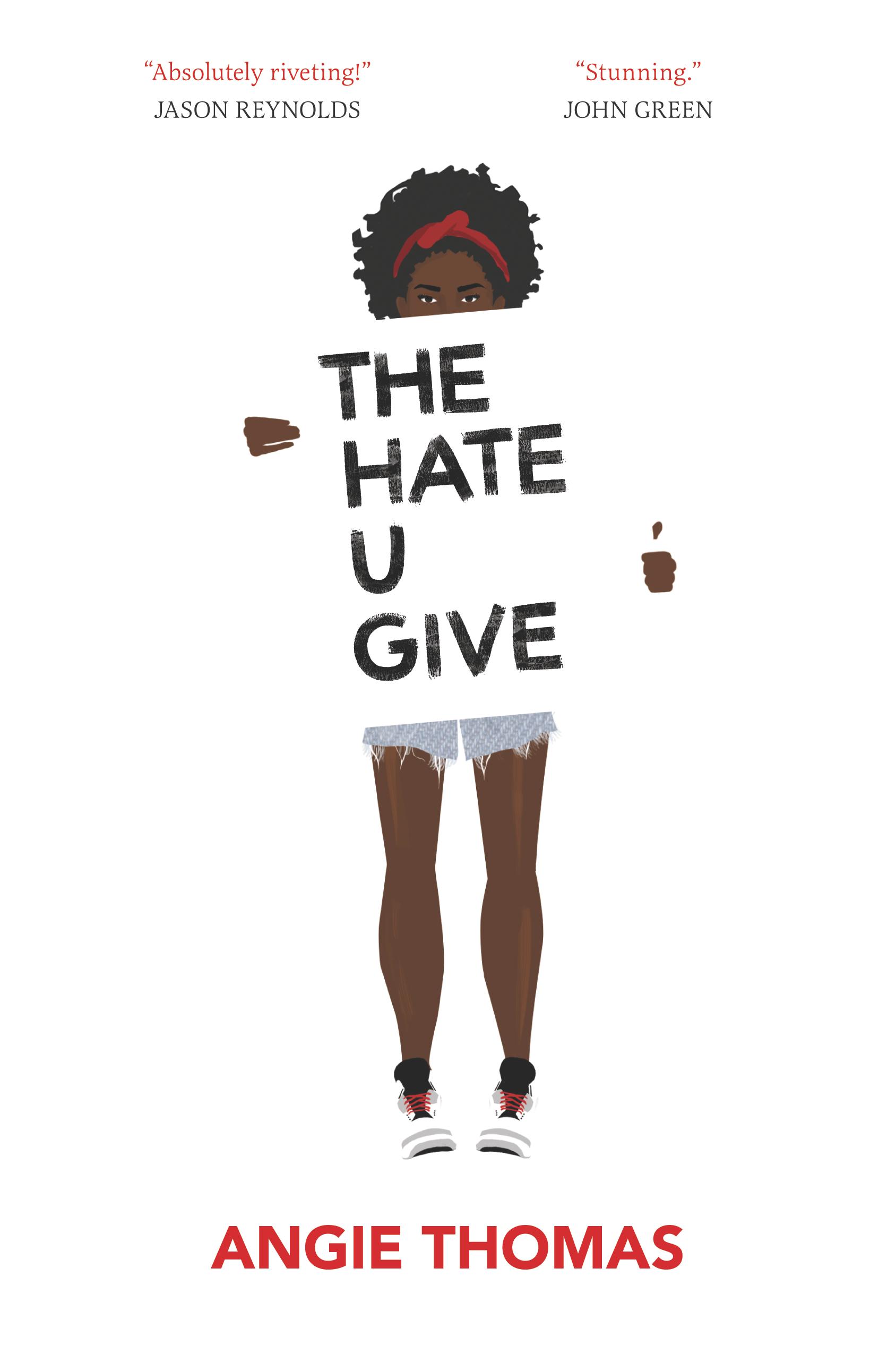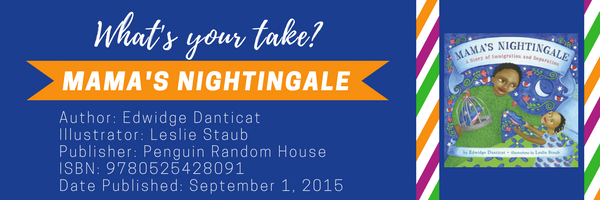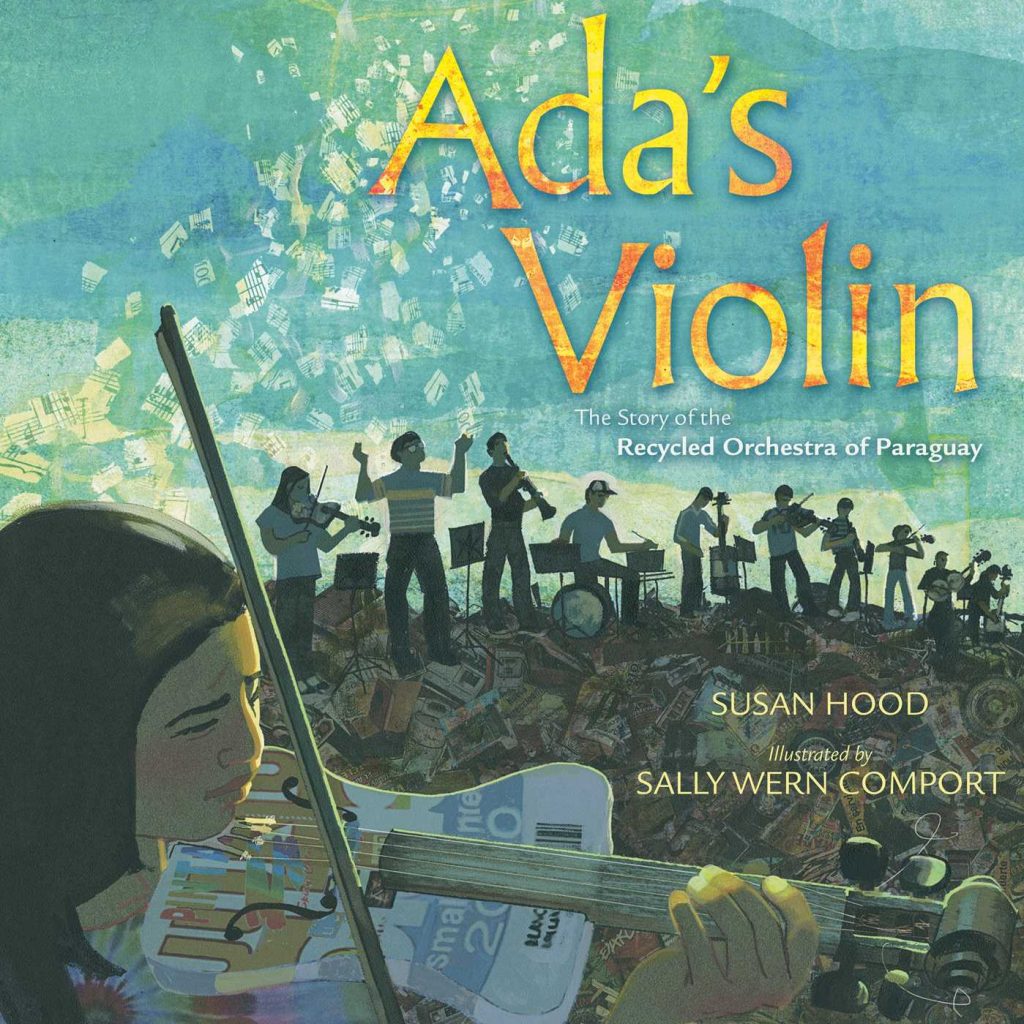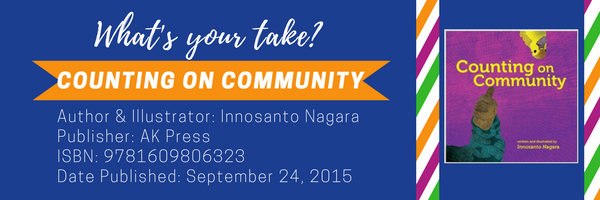We continue our conversation about the portrayal of emotional and behavioral disabilities in picturebooks, specifically characters who wrestle with childhood depression, anxiety, and outbursts. In the first three weeks, we looked at The Red Tree, Virginia Wolf, and Jack’s Worry. This week Maria and Megan take on The Snurtch by Sean Ferrell and Charles Santoso.
Author: Rebecca Ballenger
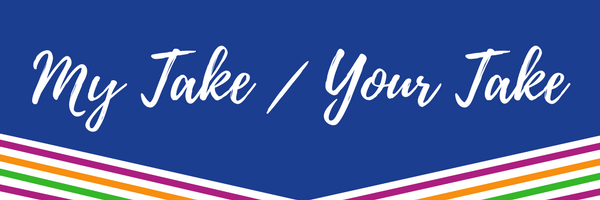

MTYT: Jack’s Worry
We continue our conversation about the portrayal of emotional and behavioral disabilities in picturebooks, specifically characters who wrestle with childhood depression, anxiety, and outbursts. In weeks one and two, we looked at The Red Tree and Virginia Wolf. This week, we offer our take on Jack’s Worry by Sam Zuppardi.

MTYT: Virginia Wolf
We continue our conversation about the portrayal of emotional and behavioral disabilities in picturebooks, specifically characters who wrestle with childhood depression, anxiety, and outbursts. Last week, we looked at The Red Tree. This week, we offer our take on Virginia Wolf by Kyo Maclear and Isabelle Arsenault.

Suggest Books to Explore Hunger and Poverty
By Deborah Dimmett, The University of Arizona
This week I am in Caracol, Haiti, working at a camp that is an industrial park partially financed by USAID after the 2010 earthquake. It is hours away from Port-au-Prince where the earthquake occurred and is an attempt to provide factory jobs and low cost housing to Haitians. The industrial park was not constructed without controversy. Haitians who work for the textile factory work long days at a rate of $5 a day. They have to purchase their home, pay for all utilities, and eat with whatever income is left. It’s difficult to imagine how they manage and even more difficult to understand the logic of neoliberal trade agreements that allow large companies like Levi-Strauss to pay so little to those who have few means for their daily sustenance. In fact, meals are sparse, often with little nutritional value but high in carbohydrates and fat so that people can sustain a long work day on only one meal.
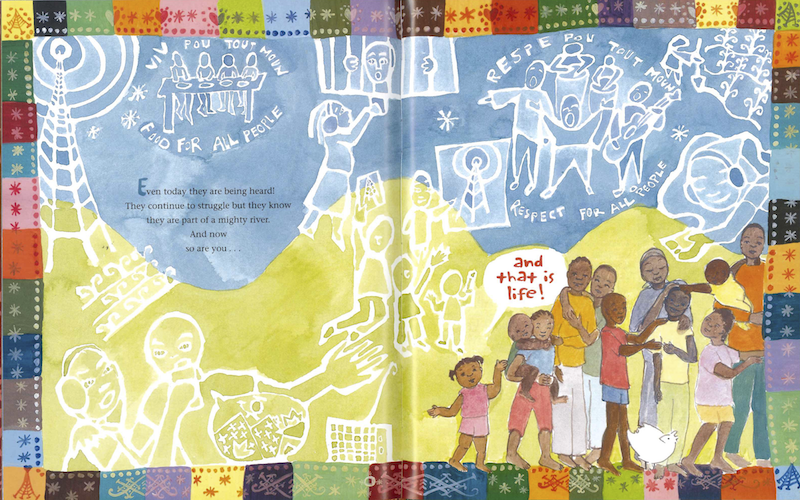
Interior illustration from SéLavi by Youme (Cinco Puntos Press, 2004)

MTYT: The Red Tree
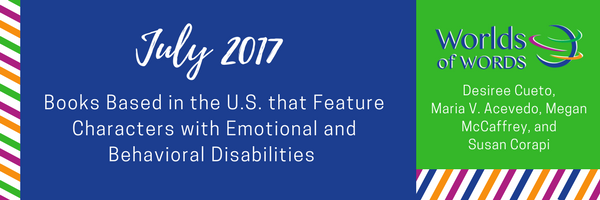
This month we are continuing our conversation about the portrayal of disabilities in picturebooks (see August 2016 and February 2017). Our focus in the following discussions is on emotional and behavioral disabilities, so we will look at characters who wrestle with childhood depression, anxiety, and outbursts. The books we discussed last August and February won the Schneider Family Award for the Portrayal of the Disability Experience. The titles discussed this month, beginning with The Red Tree, have not won that award, but they could have!

A Tale of Two Countries and The Hate U Give
By Deborah Dimmett, The University of Arizona
My visit to Haiti this summer has made me reflective about the direction of my own country. For the past month, I worked on three projects that focus on critical problems that have deep roots tied to poverty, opportunism, and politics. However, there are striking parallels to the direction in which the United States is heading with respect to caring for the most needy and vulnerable, honoring civil liberties and human rights, as well as supporting education for all because democracy in any form cannot exist without a well-informed and educated populace. In Haiti, extreme poverty, weak institutions, and natural disasters hold in place the unfortunate status quo for most Haitians. The United States, on the other hand, is among the most privileged countries in the world. Yet, our government and institutions are fervently deciding to pull support from education and social programs while civil liberties continue to be tested by the Trump Administration. This month, I write on four themes that connect realities in United States with those in Haiti. For each theme, I will feature a young adult novel that delves further into that theme. This week, I use The Hate U Give by Angie Thomas to explore racism and police brutality.

WOW Recommends: Stepping Stones
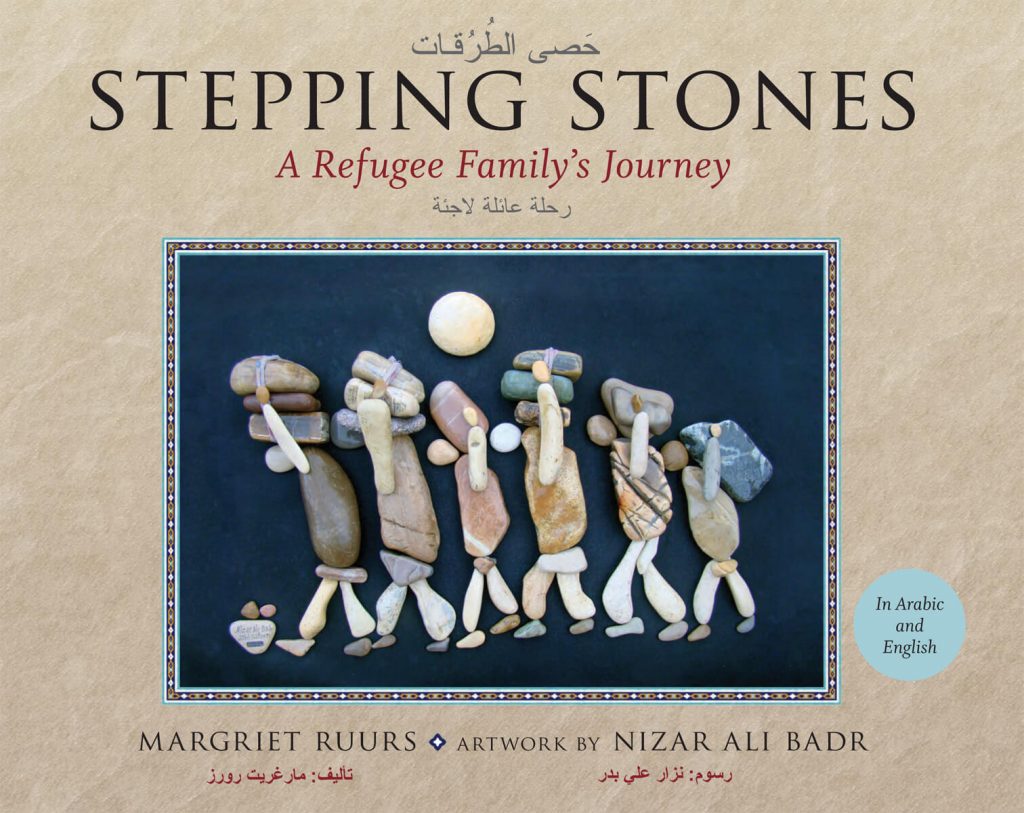
Book of the Month, July 2017
Stepping Stones: A Refugee Family’s Journey by Margriet Ruurs, with translation by Falah Raheem and illustrations by Nizar Badr
Bilingual English/Arabic text and expressive artwork made from stones tell the story of a boy and his family who must flee their home in war-torn Syria. Their journey is dangerous and grueling, but eventually they find a safe haven. This timely book is an excellent introduction to the concept of refugees and will spark powerful discussions about the consequences of war and the treatment of people forced out of their homes. -Recommended by Janine Schall
Continue reading

MTYT: Mama’s Nightingale
This post continues June’s My Take/Your Take conversation around books that highlight multiple forms of protest and the power of voice for younger readers. This week Dorea and Lauren consider Mama’s Nightingale: A Story of Immigration and Separation by Edwidge Danticat with illustrations by Leslie Staub and how it relates to children’s perspectives of their own stories. Scroll to the bottom of this post for links to the first three posts in this conversation.

Global Poverty in Ada’s Violin and Malaika’s Costume
By Seemi Aziz, The University of Arizona
As I continue to look at representations of global poverty in picturebooks, resourcefulness remains a predominant theme. Two examples of characters who live in poverty and show resourcefulness come from the books Ada’s Violin, which has been a WOW Recommends: Book of the Month selection, and Malaika’s Costume.

MTYT: Counting on Community
This post continues June’s My Take/Your Take conversation around books that highlight multiple forms of protest and the power of voice for younger readers. The conversation starts with The Rooster Who Would Not Be Quiet!, continues with Stand Up and Sing! Pete Seeger, Folk Music, and the Path to Justice by Susanna Reich and Adam Gustavson and now features Counting on Community. This week Dorea and Lauren consider the power of voice.

